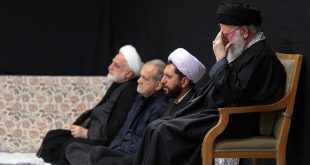How did Prophet Muḥammad (P.B.U.H) himself enunciate the adhān? Did he testify to his own Prophethood and to the mastership (wilāyah) of Imam ʿAlī (P.B.U.H) within the adhān?
In addition, why do the Shīʿa mention the phrase: ‘I bear witness that ʿAlī is the walī of Allah’ in the adhān and iqāmah, as well as in the talqīn portion during a funeral?
Finally we see that Imam ʿAlī (P.B.U.H) has said: ‘Everyone should testify to the Imam of his time.’ If he said this, then why do we not testify to the Imam of our time (Imam al-Mahdī (P.B.U.H)) during the adhān and iqāmah?
To better understand this issue, we must first explain a few points:
- The adhān and iqāmah are considered as being acts of worship and as such, all acts of worship are tawqifī – which means that they are legislated by Allah and other than Allah and His Messenger (P.B.U.H), no one has the right to legislate and initiate any laws in Islam.
- One cannot pass judgement or issue a legally-binding ruling (fatwā) through merely reading a ḥadīth in one or even several books and then act according to that ruling, because amongst the aḥādīth, there are some which are general, and others which are absolute; some which are specific and others which are conditional; some which may conflict with others, while others were issued during a period of dissimulation (taqiyyah).
Therefore, in such cases, the narrations must be given to the experts who have long been familiar with the sciences required to review and authenticate such statements as they are the ones who practice ijtihād – derivation of the laws of Islam from the recognized sources – and it is this status which they have achieved that permits them to come to a conclusion on such religious issues.
Since several queries have been raised in this one question, the answers will be presented in several sections….
Continue Reading
This article was researched by Islamquest and translated by Shaykh Saleem Bhimji and edited by Arifa Hudda.
 Ijtihad Network Being Wise and Faithful Muslim in the Contemporary World
Ijtihad Network Being Wise and Faithful Muslim in the Contemporary World
